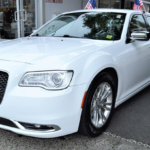by Christopher Boyle,
LONG ISLAND, NY – Believe it or not, rental cars don’t simply dry up and blow away. After their useful life as conveyance for those in a temporary state of need is at an end, many rental companies will make their “retired” wares available for sale to third parties, be they a used car dealership or just an Average Joe on the street. The number of rental cars entering the pre-owned sales market each year is rather staggering; for example, in 2017 rental giant Hertz let go of approximately 27,000 of its vehicles, and is planning on offering an even greater number this year.
You might not give any more thought to purchasing a rental car than you would any other used car being offered by a dealership, and for the most part you’d be right for doing so. In many ways, former rental cars are no different from your run-of-the-mill pre-owned vehicle… except for the important ways that they’re not. When buying used, it’s always wise to be thorough and have any prospective purchase checked out by a pro before plunking down your hard-earned cash, but there are a few additional factors to consider when you’re buying a retired rental car… read on to find out what they are.
The Federal Trade Commission defines used rental vehicles as “low-mileage, current-model-year vehicles returned from short-term leases or rentals.” Your average rental car typically has anywhere between 25,000 to 40,000 miles on the odometer – put on by an average of a year or more of heavy road use by various customers – when a rental company will decide to finally put it on the open market for sale. The average driver puts about 12,000 miles a year on their car, so to see that a rental can accumulate two-to-three times that amount – or more – in the same span of time tells you that a former rental is not the way you should go if you’re looking for a low-mileage, gently-used ride.
Clearly, these cars have been put through the paces… although, if well-maintained, that’s not necessarily a deal-breaker. Many rental companies are meticulous about keeping their fleet in tip-top shape to ensure that they always have the maximum number of vehicles available for their customers, so while many rentals may be high-mile affairs, they have at least been kept in pristine running condition and the extra miles will likely translate into a cheaper price tag… and who doesn’t want to save a few bucks?
However, that cheaper price tag usually comes with a few caveats you’ll want to be aware of.
Another potential drawback is the fact that some manufacturer’s warranties do not carry over from one owner to the next when it comes to rental cars; excessive mileage may negate some coverage, such as most power-train warranties, but typically bumper-to-bumper warranties will remain in effect. Some dealerships may offer to sell a buyer a limited warranty of their own to cover anything that a manufacturer may not.
Despite the heavy use many of their retired vehicles have endured while in their service, many rental companies will nonetheless try to sell them directly to the public for prices approximating their current Kelly Blue Book value; occasionally, they may actually try to sell them for more, as a matter of fact. While this may initially put you off, keep in mind that many pre-owned dealerships that have acquired vehicles from a rental company do so for less, and will usually offer incentives to their customers that will drive down the amount of the sale considerably, in addition to offering extra warranty protection and access to vehicle history reports, such as CARFAX. So sometimes, if you’re going with a rental, it’s probably best to check out third parties for the best value as opposed to dealing directly with the rental company itself.
One final thing to bear in mind when considering the purchase of a former rental is that a definitive record of any accidents or major engine trouble that you would normally be able to receive with the vehicle may not be so easy to get in this instance. Many rental companies use their own insurance as opposed to that of a customer. In addition, many companies have their own in-house mechanics and auto body specialists that can do work for them in the event of a fender-bender or motor trouble; because of this, the number of insurance claims by rental companies are typically low, which results in a sparse paper trail when attempting to get information on the history of the vehicle.
So, when it comes to buying a used car, a former rental is certainly an option once you’ve taken all of the potential pitfalls into consideration. But if you’re careful and get as much information as humanly possible on a given vehicle, there’s no reason why a rental car can’t be an effective – and economical – way to get behind the wheel of a newer pre-owned car.




